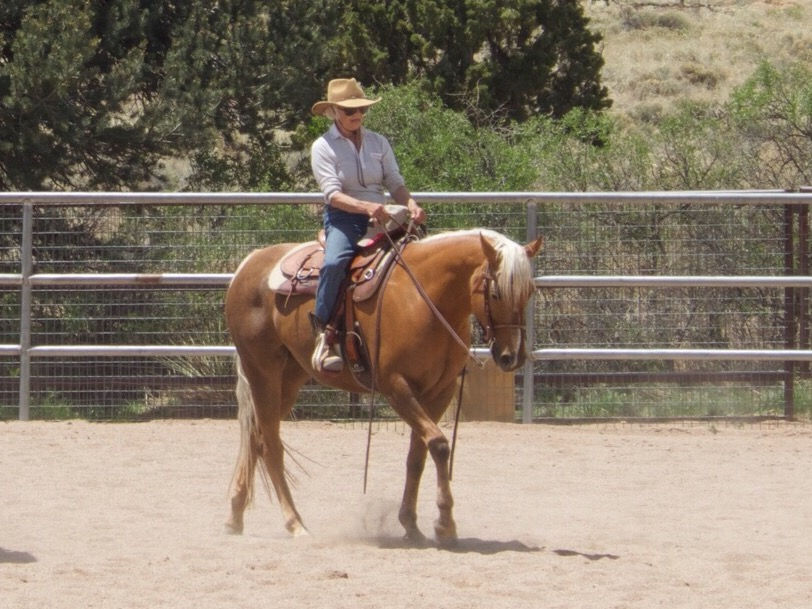
As a horse trainer, I admit that my chosen career has its share of ethical issues. Horse owners who are having a difficult time with their equine partner or are simply trying to improve their riding often look to professionals for guidance. Just as often, the first thing they hear is that, if they want to reach their goals, they should get rid of the horse they currently own horse and replace it with one better suited for what they’re trying to accomplish. Horse trainers, especially those who compete, are notorious for breaking up established horse-rider combinations. Dressage trainers push their students to buy horses with loftier gaits, Western trainers steer them toward more talented reining or ranch riding horses. Even trainers without competitive ambitions often tell their students to look for a different horse - an older, younger, bigger, smaller, less skittish or more confident horse, a gaited horse or a non-gaited horse, a horse of a different breed, a different disposition, a different gender.
This is not always wrong. Just like divorce is sometimes the best option for a bad marriage, a new horse can be the best solution for a problematic horse-rider relationship, for example when a horse-rider combination is an accident waiting to happen - a total mismatch in personalities, or temperaments. Green horses need experienced riders, yet the most inexperienced riders often end up with the greenest horses. Some trainers who tell their students to sell the horse they own do so out of concern for the rider’s safety, not for a more insidious reason.

There are other times when a rider’s ambitions are very specific, for example to earn a bronze or silver medal in dressage or to finish the Tevis, Cup. It’s not realistic to expect to get there on a horse that does not look or move the part. It’s not fair to the horse, either.
Many other times, though, trainers recommend a change in horses for reasons that have much more to do with their ego or their wallet than with the student’s or the horse’s welfare. Sales commissions are an important source of income for many trainers, and some of them are hard earned, but buying and selling horses can easily create a conflict of interest. Be a little bit suspicious if a trainer you’re working with tells you to sell your horse. Be a lot more suspicious if she just happens to have the perfect replacement.
Even if a trainer does not profit financially from a sale, her ego still can play a big role. Consciously or subconsciously, many trainers are looking for a horse that will make them look good, which might not be the best horse for the student. Other times, if the trainer has tried to work with a horse without success, it’s hard to admit what looks like failure. Rather than saying :you know what? Your horse and I just don’t get along.” it’s easier to say “Sell this one, and let’s start over.”
I never buy, sell, or market horses, mainly because I’m really bad at selling anything, but also because I don’t want to deal with the ethical issues of being a trainer and a trader at simultaneously. Of course, there are trustworthy people who buy and sell horses, horse-human matchmakers with good intentions and solid reputations. I respect them deeply and admire the work they do, but their job description is very different from mine.

Julie Wilson, lifelong horsewoman and horse-human matchmaker of the best kind.
After almost 30 years in the horse business, I try most of the time to make existing horse-rider relationships work - for the sake of the horses, first of all. Once a horse gets sold because the owner didn’t get along with him or has the reputation of being difficult or unsafe or untalented, his prospects for a long and happy life become dire.

Ivy, an ex-racehorse with a bright future, thanks to her current owner
What if safety really is a concern? There are times when selling the horse is the best option, but often, with enough help and guidance, these relationships can blossom over time. What if a rider has goals that the horse can’t fulfill? Again, it may be fair and kind to change horses, but often, a horse owner’s goals are more flexible. One of my clients adopted an off-the track Thoroughbred mare. Her main goal was to give that horse a second chance, which meant giving her a good general education. Now, the horse is becoming a lovely dressage horse, and the owner is becoming a lovely dressage rider, which she enjoys a lot, but had not really planned on. These two have become a happy pair.

Shelley and Ivy at their first dressage show.
And this brings me to my final point: investing time and effort into an existing horse-rider relationship can be rewarding for everyone involved: for the horse, who is getting a solid education. For the owner, who gets to enjoy a journey with an evolving, improving equine partner and almost certainly learns to become a better rider along the way. For a trainer like me, who makes a living from nurturing horse-rider combinations instead of breaking them up. When it comes down to it, helping horses and people get along better is the main reason why I do the work I do. It’s what I think about on my way home from the barn. It’s what gets me back to the barn every morning, ready to put my heart and mind into my job. Thank you, all my students and clients, past and present, who have given me the opportunity to work with so many types of horses. Thank you, especially, for the challenging, difficult, complicated equine individuals you’ve introduced me to over the years. You’ve made their lives better, and hopefully improved your understanding horsemanship along the way. I know you’ve improved mine.

Comentários